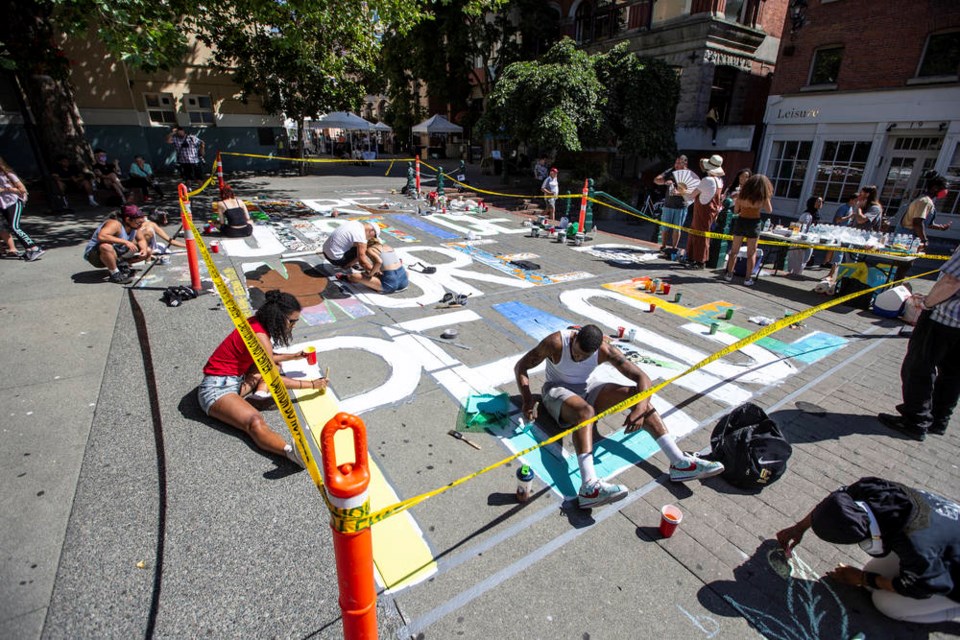A group of artists painted a mural in Bastion Square on Friday to raise awareness of injustices suffered by Black and Indigenous people and people of colour.
Seventeen artists spent the day painting individual letters that formed a mural on the grounds of Bastion Square. The project was funded by a grant from the City of Victoria, with local businesses sponsoring the work.
It was organized by Charity Williams, an Olympic bronze medallist and member of the national women’s 7s rugby team who was supposed to be in Japan competing in the Olympics this summer.
The project was inspired by similar ones taking place around North America, where communities have come together to create public art that speak out against police brutality and systemic racism.
“I believe that art activism is the best way to convey a message,” Williams said. “I hope that this mural will be the first of many, where we can take back and elevate the voices of Black, Indigenous and people of colour in the community.”
The artists were each assigned an individual letter to work on. Together, they spell: “More justice, more peace.”
The letters were first painted in white as a template for each artist to paint on.
“It is perhaps a fitting metaphor for the project,” said Laveen Gammie, a University of Victoria student who is majoring in visual arts and bio-psychology. “The letter starts out as white in the beginning and becomes filled with colour as the day wears on.”
The vivid colours and imagery decorating her letter were inspired by the Oshogbo Art movement, an art form that fuses contemporary and traditional African themes.
As a person of colour born in Canada, Gammie, 23, said that she is excited to be part of a piece of public art that gives a voice to the different ethnicities in the country.
Williams says she chose Bastion Square as the location because of its ties to Matthew Begbie, known as B.C.’s “hanging judge,” who held court nearby.
Begbie oversaw the trial of five Tsilhqot’in chiefs who were part of the Chilcotin War of 1864. The men were found guilty by a jury and sentenced to hang. The men have since been exonerated and the Law Society of British Columbia has removed Begbie’s statue from the foyer of its building, citing his role in the Tsilhqot’in trials.
“This is our way of taking back the land,” Williams said.
She said buckets of chalk markers will be left on the side of the mural after the artists have finished. The hope was that the community could be a part of the conversation, writing their own messages of support.



